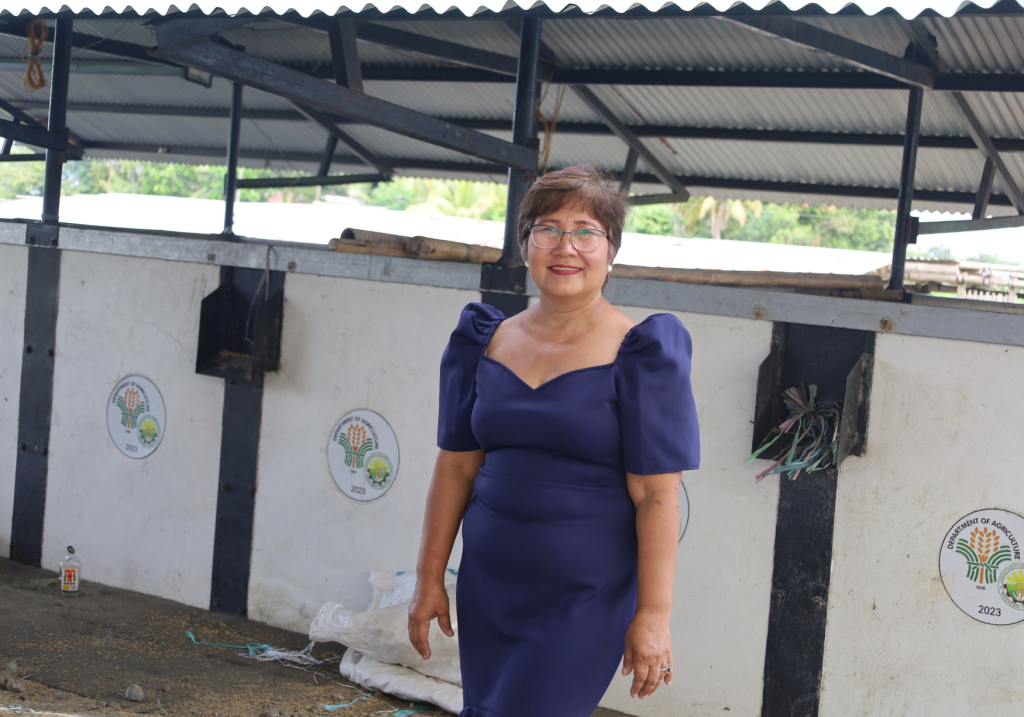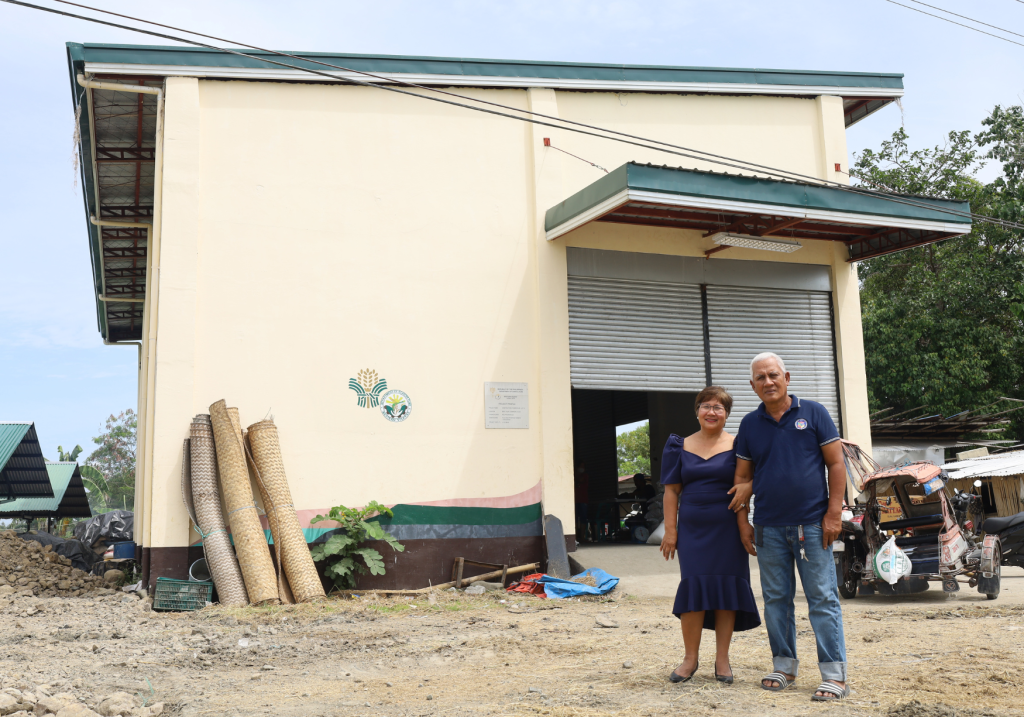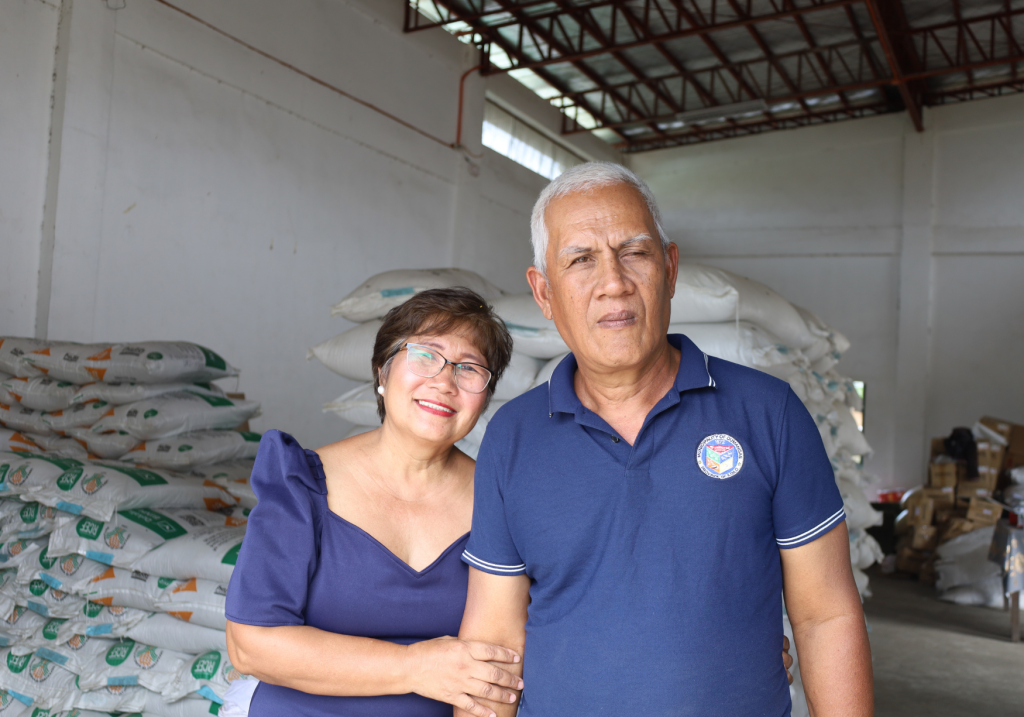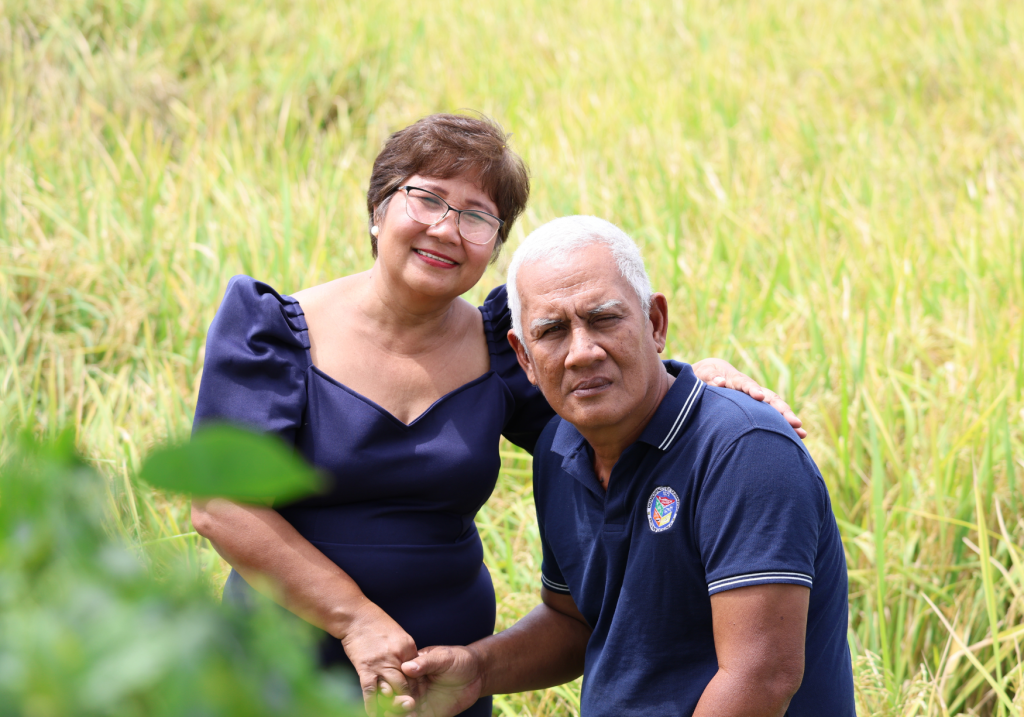A seed grower sowing success with others
Posted by: RAFIS DA6 | Posted at: March 11, 2025

For nearly three decades of hustling in the corporate world, far removed from the rhythm of the fields and the cycles of harvests, Cynthia Faulan of Brgy. Pulao, Dumangas, Iloilo had never desired she would one day venture into farming. She worked at a well-known private university in the city before making a significant career transition to leave behind the comforts of an office job and take on the unpredictable and daunting work of rice farming.
Unlike many who inherited their passion for farming from generations before them, Cynthia had no such background, as her parents had built their lives in the city. Without exposure to how crops were cultivated, soil was tilled, or livestock was raised, farming remained an unfamiliar concept—something she only read about in books or saw on television. Her transition from an 8-to-5 job was driven by financial necessity—the salary and benefits she received were insufficient to support her family alongside her husband, Rey. In 2018, she opted to enter farming, uncertain if she would thrive or fail.
Cynthia started managing a 3.6-hectare farm, with challenges that no textbook or corporate boardroom had prepared her for. She eventually went into seed production, believing it would provide higher returns for her input and labor. However, seed growing has been a puzzle; every step was filled with trial and error. But Cynthia was not discouraged from continuing. She has a significant advantage and asset, her husband, Rey, who, aside from serving as the Rice Program Coordinator of the Municipal Agriculture Office of Dumangas, supports her goals and interests. With Rey’s technical expertise and guidance, Cynthia gained confidence and eventually succeeded in growing quality palay seeds. What had initially been a means of livelihood soon turned into a promising and profitable enterprise.
Before Cynthia’s involvement, the Pulao Multi-Purpose Farmers Association had existed since 1999 but lacked momentum to progress. It wasn’t until 2021 that the organization began to move forward. That year, the Department of Agriculture (DA) Philippine Center for Postharvest Development and Mechanization (PHilMech) provided the association with a four-wheel-drive tractor and a harvester. The tractors the association initially received capacitated them to become a reliable Farm Service Provider in the locality.
When the association introduced mechanization in the community, it was met with skepticism. Many farmer-members feared tractors would displace laborers, be too expensive, or remain out of reach for ordinary farmers. As the association’s president, Cynthia was determined to prove it otherwise. With the help of other association members, she had demonstrated the cost-effectiveness and broad benefits of using modern farm machinery. By making these machines accessible at minimal costs, farmers witnessed firsthand how technology could reduce expenses, save time, avoid losses due to changing weather patterns, and boost farmers’ productivity and income. What was once met with hesitation became widely embraced, as the farm service provider program of the association is being sought by most farmers in the area.
Cynthia’s growth as a farmer can be largely attributed to her involvement in seed growing. Through technical training from the DA, she mastered the efficient and effective ways of soil, water, and pest management.
“Previously, our local farmers believed that using more seeds would lead to bigger harvests; however, this only resulted in wasted resources and lower yields.” According to Cynthia, palay requires adequate spacing for optimal growth.
Cynthia’s willingness to upskill allowed her to flourish in a male-dominated industry. Not baffled by setbacks and lack of resources, she led the farmers toward treating palay production as a profitable business and not only for subsistence.
“Until now, no farmer member had ever questioned my capability to lead them despite being a woman,” she shared.
DA Western Visayas supported the association by funding a warehouse and a flatbed dryer, while the Iloilo Provincial Government contributed another flatbed dryer. With these assets, the association evolved from merely supporting local farmers to empowering them to become resilient and self-sufficient.
With a positive track record and receptiveness to government programs, the Pulao Multi-Purpose Farmers Association became a cooperator for the DA Western Visayas’ Hybrid Rice Demonstration Project in 2022. This initiative significantly influenced rice growers in Brgy. Pulao to plant hybrid rice seeds and adopt high-yielding technologies.
Cynthia recalls a local farmer who harvested 400 bags of palay from a two-hectare rice field after using hybrid seeds and applying DA-recommended technologies. She expressed her gratitude for the DA’s interventions under the Masagana Rice Industry Development Program, which provided farmers with free hybrid seeds, fertilizer discount vouchers, soil ameliorants, and bio-fertilizers. The inputs had significantly eased the financial burden of many farmers and urged them to continue farming amid the volatility in the sector.
As Cynthia’s expertise grew, so did her aspirations for the association. She envisioned the Pulao Multi-Purpose Farmers Association not only as a farm service provider but also as a major supplier of high-quality rice seeds in Iloilo. With training in cluster development planning and enterprise development from the DA’s Farm and Fisheries Consolidation and Clustering Program, Cynthia encouraged fellow farmers to expand into seed production.
Now, 25 association members will begin seed production in the upcoming cropping season, aiming for higher incomes with the technical knowledge from the DA and Municipal Agriculture Office. Farmers are now learning how to produce seeds efficiently—following prescribed protocols from land preparation to planting, fertilization, and harvesting.
“Seed growing is much more profitable,” Cynthia shares. “Based on my experience, I can harvest 120 to 150 bags of seeds per hectare by planting early-maturing varieties.”
Members are also bound to attend the seed-growing training of the Iloilo Provincial Government on March 20 to equip themselves with the new technologies and recommendations.
Cynthia also mentioned that the DA and Iloilo Provincial Government tapped the association to supply 400 bags of registered seeds for bufferstocking purposes. She is seeking assistance from the DA to increase their allocation of foundation seeds so they can materialize the aim.
As a female farmer leader, Cynthia is breaking barriers. She believes women bring unique strengths to the sector—resilience, patience, and exceptional organizational skills. These qualities have not only helped her manage a farm but have also cemented her role as a respected community leader.
Under her leadership, the association ensures that government-provided machines and tractors are correctly operated and maintained, technology training and recommendations of the government are followed, and inputs are appropriately used. Soon, the association plans to expand beyond a farm service provider. They aim to sell farm inputs with flexible payment terms, allowing farmers to settle payments after harvest so rice growers will avoid falling into cycles of debt.
To enable more opportunities for the association, Cynthia seeks more working capital to enhance seed sales, improve crop drying and milling processes, and secure better market access for palay, ensuring farmers receive fair pricing for their toil.
Cynthia has no regrets about leaving the corporate work. Farming has provided her family with financial independence and stability. Her children, now professionals, have embraced the values of hard work and perseverance—one has even pursued a career in agriculture.
“I realized I am truly meant for farming,” she says. “I no longer live in the rat race of loans and financial instability. You will never go hungry if you are industrious and hardworking on the farm.”
###
Text by Sheila Mae Toreno
Photos by: Khrysma Dei Caldina and Georgia Mae Cordova
DA-RAFIS 6










